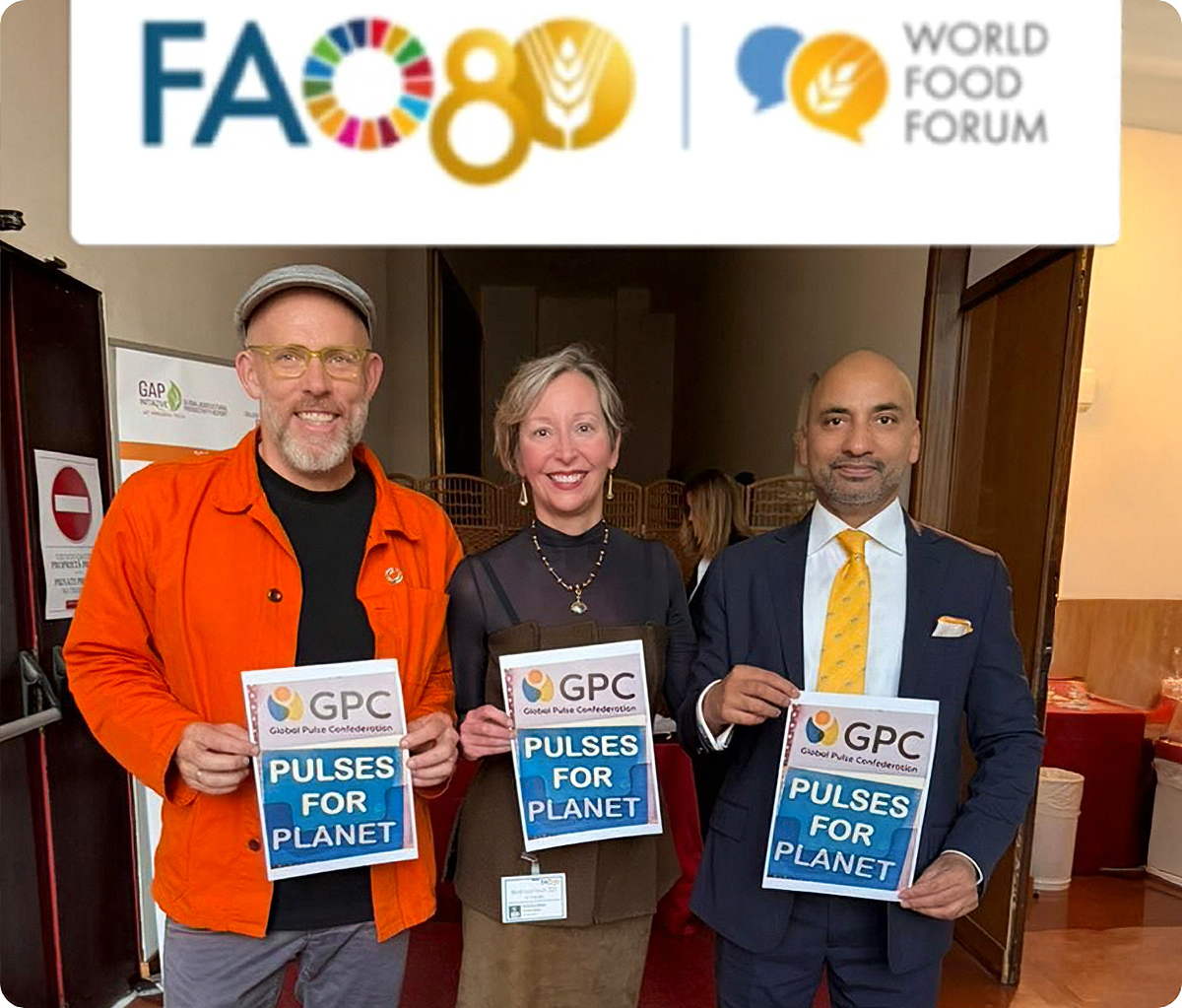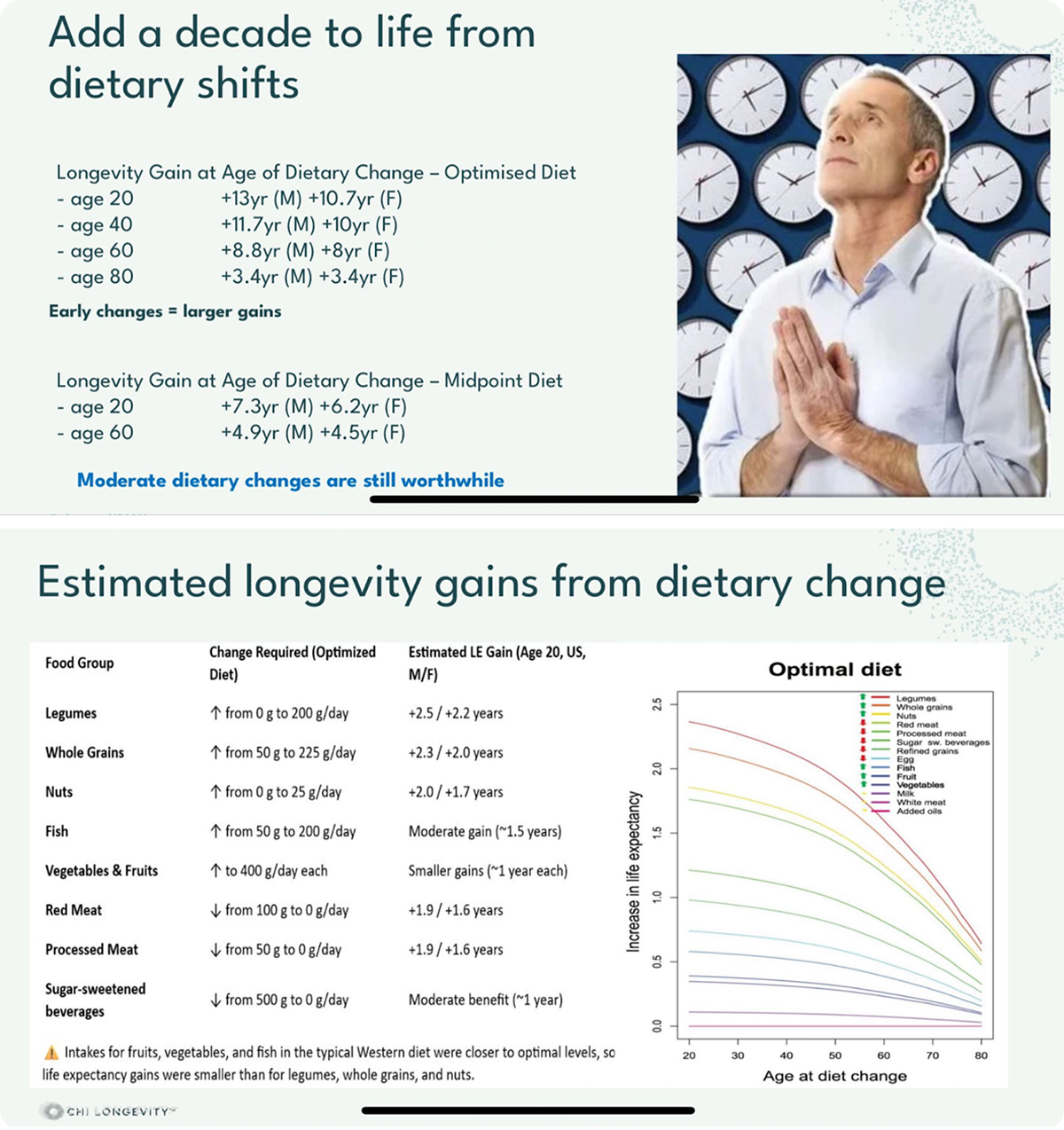November 3, 2025
October 2025 featured GPC representation at major summits, important data on consumption and two new initiatives with promising benefits for planetary diets and smallholder farmers. Here’s our roundup of the developments in policy & sustainability.


In October, GPC President Vijay Iyengar held a meeting with the board of the Ethiopian Pulses and Oilseeds association to discuss collaborating on consumption and production initiatives through potential future regional conventions.

(L-R) Paul Newnham, Robynne Anderson and Sudhakar Tomar
Sudhakar Tomar attended the World Food Forum and HiH Investment Forum at FAO headquarters in Rome, Italy in October, connecting with Robynne Anderson of Emerging Ag and Paul Newnham of the SDG2 Advocacy Hub to represent pulses on the global stage.
Published early October, the 2025 EAT-Lancet report highlights pulses as a critical strategic asset for healthy, sustainable, and just food systems within planetary boundaries. The report updates the Planetary Health Diet, recommending a daily intake of 75g pulses (over 500g per week), which is a substantial increase from current global averages, especially in high-income countries where intake is less than 20g per day. Pulses feature prominently for their nutritional benefits, particularly as fiber sources for gut health and microbiome regulation. They are recognized for low-input cultivation, nitrogen fixation, and biodiversity restoration through diversified rotations, reinforcing their role in climate-smart agriculture.
The report signals major opportunities for policy incentives, market expansion, and consumer-driven innovation tied to pulses. Regions with high pulse consumption like South Asia and East Africa are positioned as knowledge leaders, while high-income regions must accelerate dietary shifts to meet nutrition and sustainability goals

Source: Abbot Labs
Launched mid-October during the World Bank-IMF Annual Meetings, AgriConnect targets transforming smallholder farming into a job-creating, resilient, and investment-attracting sector and aims to double annual agribusiness and agri-finance investments from $4.5 billion to $9 billion by 2030. In an approach that underlines smallholder farmers not just as producers but as active participants in dynamic food economies, the mission focuses on linking finance, technology, infrastructure, and markets to empower over 500 million smallholder farmers globally.
Partnerships from regional development banks, IFAD, private sector players (e.g., Bayer’s IP support for nitrogen-fixing wheat trials), and tech giants (Google AI solutions for farmers) exemplify collaborative momentum.
In a session on nutrition, Abbot Laboratories demonstrated pulse consumption’s significant positive impacts for longevity, highlighting dietary changes, specifically to eating habits rich in legumes, as key for adding up to 13 years to an individual’s life expectancy.
The 53rd Session of the Committee on World Food Security (CFS53), held in October 2025 at FAO headquarters in Rome, took place amid persistent global challenges such as volatile food prices, climate shocks, and widening inequalities. Key outcomes included endorsement of new policy recommendations for urban and peri-urban food systems and the launch of a new policy convergence process for resilient food systems. Discussions underscored that public funding alone is insufficient to transform food systems sustainably, highlighting the need for an estimated $1.3 trillion annual investment through 2050.
The session emphasized the critical role of the private sector in driving innovation and fostering public-private partnerships to deliver resilient, inclusive, and sustainable food systems. Greater coordination and collaboration among stakeholders, including governments, private actors, and civil society, were also prioritized to enhance the impact of CFS policy products.

policy / sustainability / FAO / EAT-Lancet / Vijay Iyengar / Paul Newnham / World Bank / Robynne Anderson / Sudhakar Tomar
Disclaimer: The opinions or views expressed in this publication are those of the authors or quoted persons. They do not purport to reflect the opinions or views of the Global Pulse Confederation or its members.